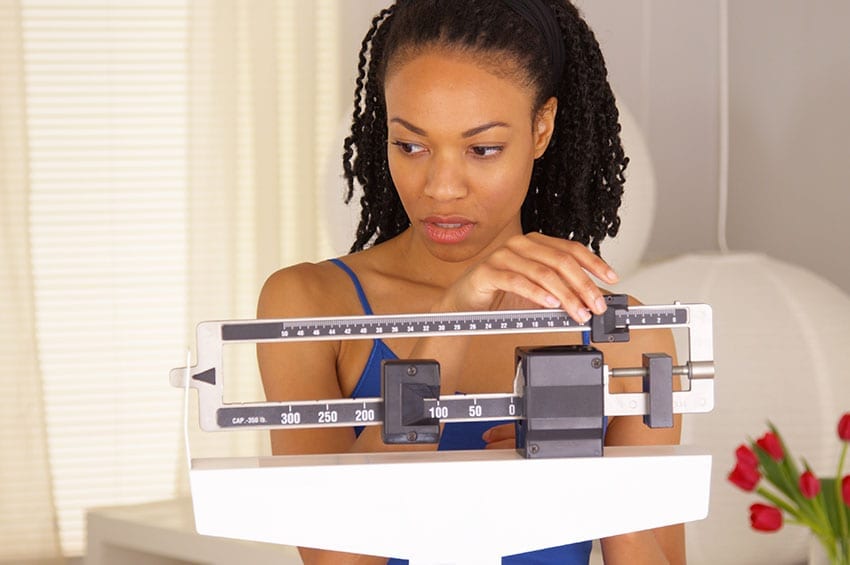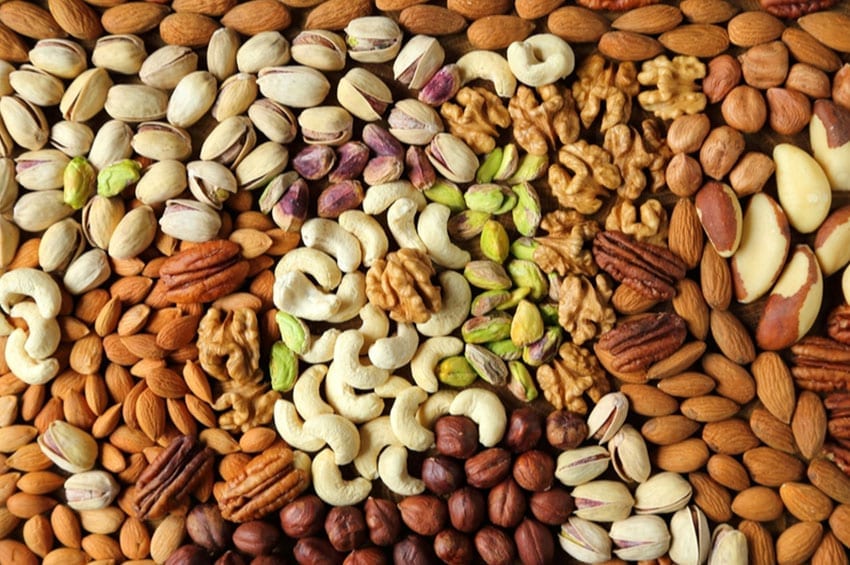Not Losing Weight on Keto Diet? 10 Reasons Why

The keto diet continues to grow in popularity, and there’s no surprise why: Keto delivers results. Keto provides you with energy. Keto helps you feel like you again.
But what happens when you’re following keto and you’re not seeing the results you thought you would see? If you’re new to the keto diet, it can seem like there are a lot of rules to follow. Mastering keto eating habits and staying in ketosis is the key to your success.
Here are the top 10 reasons you’re not losing weight on keto.
1. You’re Not in Ketosis… Yet
If you’ve been following the keto diet diligently for a few days, but haven’t seen the scale budge, you might not be in ketosis… yet. It can take as little as two days or as many as two weeks depending on your eating habits, exercise routine, etc. for your body to shift into ketosis.
Here’s the good news: you don’t have to guess if you’re in ketosis or not. You can test your ketones in three ways:
- With a breath test: To check your breath, simply breathe into a breathalyzer, and the device will deliver a reading based on the acetone levels in your breath.
- With a urine test: You can also check your levels with a urine test. Experts suggest that the most accurate urine strip results are either early in the morning or after a solid keto meal. [1]
- With a blood test: Considered the most accurate way to check ketone levels, a blood test will deliver your results in a simple format: the number of blood ketones in mMol/L.
If your urine, breath, or blood results indicate that you are not yet in ketosis, then continue with your diet and check your levels again in a few days. If you’re still not losing weight on keto, it could be due to one of the upcoming reasons.
2. You’re Snacking on Nuts All Day
Hungry at work? A handful of roasted almonds can take the edge off the hunger pangs. Nuts are on the keto safe list, but overdoing it on nuts can hinder your weight loss. Why? One cup of whole almonds contains a whopping 30.4 grams of protein, but also 28.2 grams of carbohydrates. [2]
If you’re not carefully tracking your carb intake, you might not-so-intentionally allow hidden carbs into your diet.
If you enjoy snacking on nuts, consider switching to macadamia nuts. Each 28-gram serving (that’s about a ¼ cup) yields just 2 grams of net carbs and a whopping 24 grams of fat!
3. You’re Not Eating Enough Satisfying Foods
Maintaining a calorie deficit is one of the pillars of weight loss, but it’s important to remember that all calories are not created equally. Empty calories won’t keep you feeling full, but a higher quality calorie will. This is the simple explanation behind why a 400-calorie steak is more filling than a 400-calorie doughnut.
No one wants to feel hungry all the time, and thankfully, eating at a calorie deficit doesn’t have to mean you’re doomed to feel those hunger pangs all day. Feeling hungry can actually slow down your metabolism, make you feel moody, and increase your risk of a snack attack.
So, if you’re not losing weight on keto, what’s the trick to feeling satisfied while restricting calories? Eating the right keto-friendly foods such as:
Satiating Healthy Fats: Healthy fats like MCT oil not only help you feel full, but they also help promote ketone production. [3]
Healthy Sources of Protein: Protein sources like steak have plenty of protein to keep you satiated, but protein sources like fatty fish (think: wild caught salmon) also serve up health fats.
4. You’re Eating Too Many Fat Bombs
The ketogenic diet is high-fat, but it’s not endless fat. While fat bombs can be tasty ways to get enough fat into your diet, it is possible to eat too much fat on keto. Ounce for ounce, fat has approximately double the calories as protein or carbs, which means it’s easy to rack up the calories even with smaller-looking portions. Remember, without a calorie deficit, weight loss doesn’t occur.
Not sure if you’re overdoing the fat? Use a simple calculator to determine your keto macros, and you’ll never overdo the fat bombs again.
5. You’re Not Losing Weight on Keto Because You Aren’t Eating Enough
We just said that weight loss requires a calorie deficit, but the opposite is also true: if you don’t eat enough, you won’t lose weight.
If your calorie deficit is too large, your body simply doesn’t get the energy it needs. As a result, your metabolism slows down, enters starvation mode, and your body begins to use up your hard-earned lean muscle mass to get the energy you require.
This keto calculator can be used to determine your daily caloric needs for your specific weight loss goals.
6. You’re Hitting the Gym Too Much
When it comes to creating a calorie deficit, you’ve got two options:
- Restrict your calories
- Exercise
Most individuals find that a combination of restricting calories (within reason) and exercise yields success on the scale, but be warned that too much of a good thing can be too much. Too much exercise can actually hinder your progress.
If you’re exercising intensely and restricting calories, your energy stores will be zapped, and you might feel more hungrier than ever.
If you think too much cardio is causing your plateau, try re-evaluating your workout regimen.
7. You’re Too Stressed
Feeling stressed at work? Stress can wreak havoc on your mental health, and it can even sabotage your weight loss goals.
When you feel stressed, your body releases cortisol, also known as the stress hormone. While this hormone can be beneficial in short doses — it can energize you to fight or flight in an emergency — too much cortisol can cause weight gain. Stress doesn’t have to be physical for it to affect the scale.
Mental stress can increase belly fat, increase glucose levels, increase your cravings, and even reduce your inclination to work out. [4]
If you suspect stress is the culprit, try to avoid your specific stressors, if possible. Yoga, deep breathing, and walks in nature can also help reduce cortisol levels in your body.
8. You’re Binging on Netflix Instead of Sleeping
Binging on your favorite TV show may feel like the perfect way to unwind, but if it continually dips into your sleeping time, you might become sleep deprived. While a coffee with half and half — hold the sugar — may help wake up, chronic sleep deprivation may be limiting your ability to lose weight.
A 2019 study published in Nutrients revealed just how much one night of sleep loss can impact your weight loss goals: participants slept just 33 percent less than normal and experienced fatigue, tiredness, and increased cravings.
It’s hard to stay on track when sleep-deprived cravings kick in! To ensure that sleep deprivation isn’t working against you, aim for at least seven to nine hours of sleep each night.
9. Leptin Resistance
Have you ever wondered how your brain knows that your stomach is full? Leptin plays a big role in sending messages of satiety to your brain. However, there are a few circumstances that cause your body to develop leptin resistance, and when this happens, those messages of satiety don’t get delivered to your brain.
Irregular sleep, overeating, and stress are all these conditions that not only sabotage your weight loss, but they also promote leptin resistance. [5]
This is another good reminder to manage stress levels and prioritize healthy sleep habits.
10. You Have Food Sensitivities
You’re working out. You’re following the keto diet to a T. But you’re still not losing weight. What gives? You might have food sensitivities. Food sensitivities are not like food allergies; they do not cause an immune system response. Sensitivities can, however, cause inflammation that interferes with weight loss.
Unfortunately, dairy is one of the most common triggers for food sensitivities, and all that butter and heavy cream you’re using might trigger an inflammatory response in your gut.
Here’s the good news: food sensitivities are easy to confirm or rule out. You can use elimination diets but these tend to take more time. A quick blood test can quickly scan for dozens of triggers.
Not Losing Weight on Keto: Your Next Steps
Remember that every body is different, and your weight loss journey is unique to you. Take your time working your way through this list to determine what’s causing your plateau. In the meantime, continue to stick with keto-friendly recipes, and don’t hesitate to join Keto Club to take your results to the next level.
References
Urbain, Paul, and Hartmut Bertz. “Monitoring for Compliance with a Ketogenic Diet: What Is the Best Time of Day to Test for Urinary Ketosis?” Nutrition & Metabolism, BioMed Central, 4 Nov. 2016.
Kinsella, R, et al. “Coconut Oil Has Less Satiating Properties than Medium Chain Triglyceride Oil.” Physiology & Behavior, U.S. National Library of Medicine, 1 Oct. 2017.
Geiker, N R W, et al. “Does Stress Influence Sleep Patterns, Food Intake, Weight Gain, Abdominal Obesity and Weight Loss Interventions and Vice Versa?” Obesity Reviews : an Official Journal of the International Association for the Study of Obesity, U.S. National Library of Medicine, Jan. 2018.
Cui, Huxing, et al. “The Cellular and Molecular Bases of Leptin and Ghrelin Resistance in Obesity.” Nature Reviews. Endocrinology, U.S. National Library of Medicine, June 2017.









